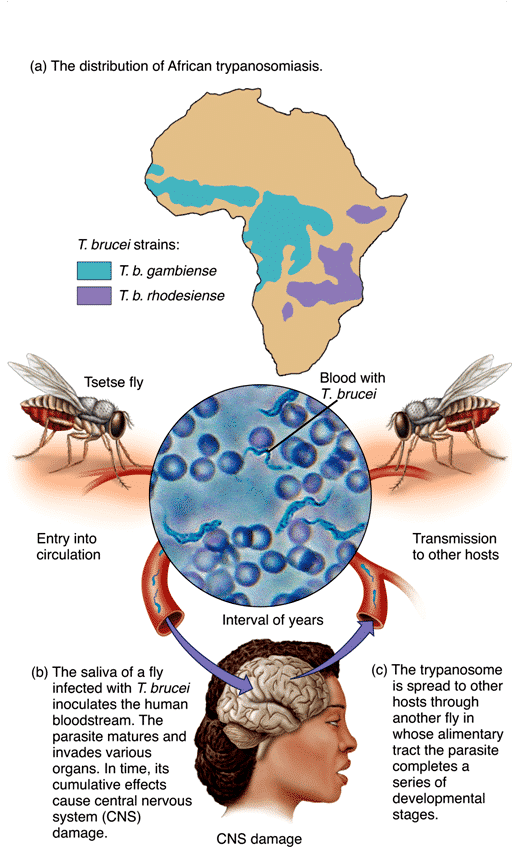Sleeping Sickness a Circadian Rhythm Abnormality
Your circadian rhythm is a natural, internal system that’s designed to regulate feelings of sleepiness and wakefulness over a 24-hour period. This complex timekeeper is controlled by an area of the brain that responds to lights, which is why humans are most alert while the sun is shining and are ready to sleep when it’s dark outside.
Now, in a new study at the Instituto de Medicina Molecular, scientists report that the African sleeping sickness is a circadian rhythm disorder caused by the acceleration of biological clocks controlling a range of vital functions besides sleep.
“This is not specifically a sleeping disorder,” said Luisa Figueiredo, Ph.D., group leader at Instituto de Medicina Molecular. The disease is a fatal disease caused by Trypanosoma brucei, a unicellular parasite that lives in the bloodstream and interstitial spaces of peripheral tissues and the brain. Patients have altered sleep/wake cycles, body temperature, and endocrine profiles, but the underlying causes are unknown.
In the course of the study, the scientists used mouse models to find that the biological clocks in infected mice ran faster after parasites entered the blood stream, resulting in inverted sleeping cycles as well as hormone and body temperature abnormalities similarly seen in patients with sleeping sickness.
“What we still need to find out is exactly what is causing the clocks to change during sleeping sickness. Is it a secretion from the parasite, or a molecule produced by the host in response to the infection? Knowing the source will help us have a better understanding of the disease and potentially block such effects.” said Dr. Figueiredo, who was recently awared a grant from the European Research Council.
Dr. Figueiredo and Dr. Joseph Takahashi at the UT Southwestern, Dallas, USA conducted this study based on a previous one by them that showed for the first time that parasites have biological clocks. The study further showed that this circadian cycle renders the sleeping sickness parasite — known as Trypanosoma brucei – more vulnerable to medications during the afternoon.
Both findings could eventually be beneficial for patients whose bodies can’t handle side effects of the arsenic-based treatments used to eradicate the parasite. In addition to knowing which genes to target when developing new therapies, doctors hope the findings will allow them to reduce the duration and dosage of current treatments by knowing the optimal time to administer them.
























